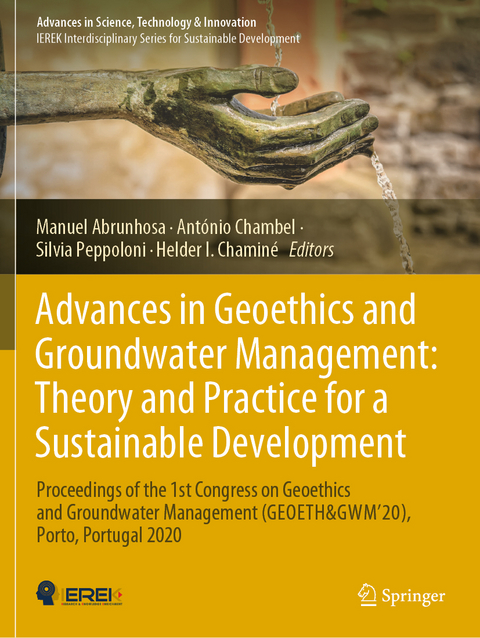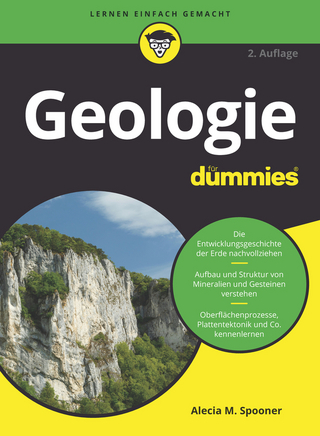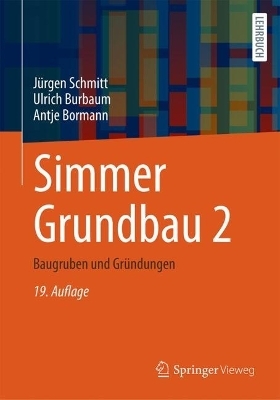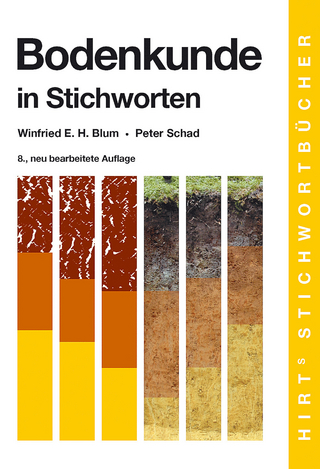
Advances in Geoethics and Groundwater Management : Theory and Practice for a Sustainable Development
Springer International Publishing (Verlag)
978-3-030-59322-3 (ISBN)
This book gathers the peer-reviewed proceedings of the 1st congress on Geoethics & Groundwater Management (GEOETH&GWM'20), held in Porto, Portugal, in an online format on 18-22 May 2020. Hosted in School of Engineering (ISEP), Polytechnic of Porto based on Porto city (a UNESCO World Heritage Site), the international conference focused on what has now been dubbed "hydrogeoethics", a novel transdisciplinary, scientific field integrating all dimensions of geoethics in groundwater science and practice. Given its scope, the book is of interest to all researchers and practitioners in the geosciences, hydrology, water resources, hydrogeology, natural resources management, environment, engineering, law, sociology, education, philosophy, culture, among others.
This joint congress is the result of a collaborative agreement between the IAH (International Association of Hydrogeologists) and IAPG (International Association for Promoting Geoethics) and reflects the need for concerted actions to achieve sustainable development.
The diversity, scale, significance and increasing magnitude of anthropogenic interactions with aquifers and groundwater, which often involve conflicting values or interests, call for analysis, discussions and decisions on the part of the agents involved, e.g. groundwater scientists, policymakers, managers, organisations, professionals and citizens. This approach calls for a responsible, sustainable and human approach to groundwater use and management.
The groundwater community involved in the exploration and exploitation, use and management of this increasingly vital natural resource is becoming more and more aware that ethical issues pervade all our attitudes from concept to action and need to be addressed. Diverse values and cultures, science and education, law and policies, human and natural environments and the public and the economic sectors view groundwater and its value and/or role differently. The authors believe that in a globalised and interconnected world, common ground must be found in the interest of peace, human development and sustainability.
The main topics covered here include:
1. Fundamentals of hydrogeoethics: cultures, principles and geoethical values on groundwater science and engineering
2. Lessons for a resilient and sustainable future with hydrogeoethics: case studies of geoethics in groundwater science-engineering, profession, and management
3. Scientific and humanistic components of hydrogeoethics in groundwater education and professional training
4. Socio-hydrogeology and ethical groundwater management
5. Geoethics of decision making under uncertainty and ethical issues in neglecting groundwater functioning
6. Groundwater: geological, legal, social, and ethical challenges of a unique natural resource
lt;p> Manuel Abrunhosa
Manuel Abrunhosa was born in Porto in 1954 and graduated in Geology from the University of Porto, Portugal, in 1980, and in 1988 a Master in Groundwater Hydrology from the Polytechnic University of Catalonia, Barcelona.
He began a full-time professional career as a Junior Geologist (Hydrogeology and Engineering Geology) in 1977, before graduation, pursuing studies and continuing his first job as a contracted helper to the practical classes of disciplines of his Geology course in the University of Porto, from 1974 up to 1980. In 1981, he became a partner and director in a small company of Applied Geology and Hydrogeology services. Since then, he directed and was author and co-author of innumerable projects aimed at the private and public sector until 2009. In 1981, after public exams, he became a Lecturer in Geology at the Faculty of Sciences of the University of Porto, having taught theoretical and practical classes in Hydrogeology, Engineering Geology, Sedimentary Petrology, Geomorphology, Geological Cartographic Methods, Mineralogy, Crystallography, Structural Geology and oriented pedagogic internships in secondary schools. He did research in hydrogeology of fractured media and participated in national and international research projects in this subject aiming water resources and groundwater management in the Minho region (NW Portugal) and in the optimisation of groundwater exploitation in complex well-field thin coastal sandy aquifer. Other active interest in science includes natural heritage studies and geoarchaeology with collaborations beginning since as a student with research groups in archaeology, ethnology and history. He was involved in 1990 in the foundation of the first academic course on Environmental Health and Hygiene that included curricula in geology and hydrogeology. He was also involved in a first master's in Environmental Marketing. He is often called as Forensic Geology expert witness and as pro bono scientific advisor to cultural and natural heritage and environmental advocacy associations.
Since 2006, he is an independent Consultant Geologist. He is a member of several national and international scientific and professional associations. At the Portuguese Association for the Study of the Quaternary - APEQ - (publisher of Estudos do Quaternário /Quaternary Studies), he is the Secretary of the Board and is President of the AIH-GP - Portuguese Chapter of the International Association of Hydrogeologists (IAH). As an active member of the International Association for Promoting Geoethics (IAPG), he was invited in 2017 to his Board of Experts (Corresponding Citizen Scientists) in Geoethics in Groundwater Management. In 2018, he was jointly designated by IAH and IAPG as Chair of the international congress "Geoethics & Groundwater Management: Theory and Practice for a Sustainable Development", in preparation, to be held at ISEP, Porto, Portugal, from 21 to 25 October 2019.
The ethics at the profession, in science production and in the applied Earth Sciences, has always been a concern and a guideline for his activities, a challenge for a geologist who, being born from a school oriented to the exploration and exploitation of geological resources in what he calls predatory geology, has gradually changed his priorities to become a Geoethics Advocate, an Environmental and Social Geologist for Sustainability.
António Chambel
A. Chambel is a skilled Geologist and Professor of Hydrogeology and Water Resources at the University of Évora, with over 35 years' experience in multidisciplinary groundwater research, consultancy and practice. He graduated in Geology from the University of Coimbra in 1984 and obtained an M.Sc. in Economic and Applied Geology from the University of Lisbon in 1990 and Ph.D. in Geology, specialising in Hydrogeology, from the U
1. Relational value as an argument to protect geological and hydrogeologic goods.- 2. Ethical and moral issues relative to groundwater.- 3. Some basic considerations on the applied ethics to water resources management.- 4. The precautionary principle and groundwater.- 5. Geoethics for operating in the human niche.- 6. Cross-cutting role of groundwater in achieving the SDGs and an ethical approach.- 7. Inclusion of indigenous communities in water resources management in the Middle West of Brazil: a proposal.- 8. Ganga river: a paradox of purity and pollution in India due to unethical practice.- 9. Evaluating public opinion on groundwater extraction from public comment submissions and Google Trends.- 10. Public perceptions and attitudes towards groundwater and climate change. The case of the Barbate river basin.
| Erscheinungsdatum | 01.04.2022 |
|---|---|
| Reihe/Serie | Advances in Science, Technology & Innovation |
| Zusatzinfo | XLV, 523 p. 204 illus., 180 illus. in color. |
| Verlagsort | Cham |
| Sprache | englisch |
| Maße | 210 x 279 mm |
| Gewicht | 1393 g |
| Themenwelt | Naturwissenschaften ► Geowissenschaften ► Geologie |
| Schlagworte | climate change • earth sciences • geoethics • groundwater • sustainability |
| ISBN-10 | 3-030-59322-3 / 3030593223 |
| ISBN-13 | 978-3-030-59322-3 / 9783030593223 |
| Zustand | Neuware |
| Informationen gemäß Produktsicherheitsverordnung (GPSR) | |
| Haben Sie eine Frage zum Produkt? |
aus dem Bereich


